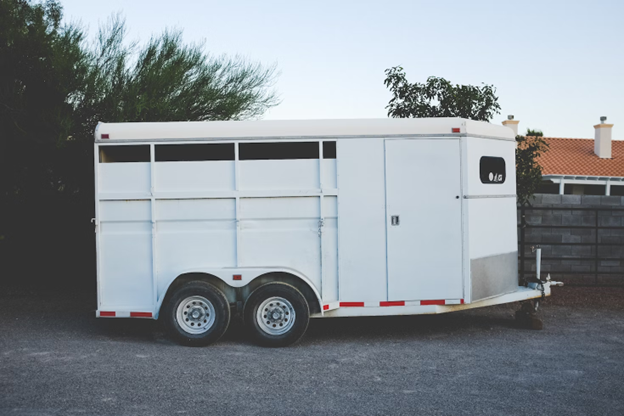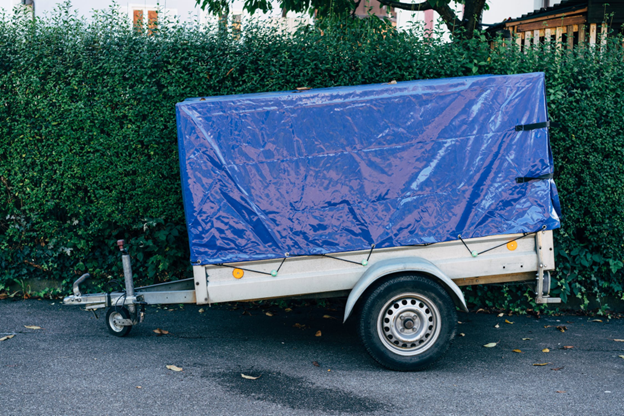 Trailers can be an incredibly useful asset in every aspect of life – from transporting powersports gear to the trailhead to moving boxes into your new house, and more! However, before purchasing one it’s crucial to fully understand its purpose and limitations.
Trailers can be an incredibly useful asset in every aspect of life – from transporting powersports gear to the trailhead to moving boxes into your new house, and more! However, before purchasing one it’s crucial to fully understand its purpose and limitations.
Set a Budget
Be it a new or used trailer, it is wise to set a budget before beginning your search. Doing this will prevent spending money that you don’t have and also avoid cutting features or models simply in order to stay within your price range.
Keep in mind that purchasing a trailer comes with additional expenses such as taxes and registration costs (https://www.fhwa.dot.gov/ohim/hwytaxes/2001/pt11b.htm) which can make the final cost more expensive than expected. To minimize these extra expenses, do your research about different trailer types and their respective pricing structures before making your final purchase decision.
When looking at trailers for sale, it’s also essential to consider their build quality. While buying a low-quality trailer may save a few dollars in the short term due to poor workmanship and materials used in their creation, in the long term this could end up costing more due to potential workmanship or material problems.
Doing some online research before purchasing a trailer can help ensure that you receive an exceptional trailer. Read user reviews on their websites and study its history in order to ascertain how well it holds up over time, as well as any recurring maintenance issues which should be noted.
Consider how much space you will require before buying a trailer. Although it might be tempting to opt for something small now, your needs could change in future years – so investing in a larger one now could save time later on. Loans are an option available to most if they’re looking for a trailer for work purposes; something to keep in mind.
Consider Your Towing Vehicle
Not only should you carefully consider which trailer to buy, but you must also think about which vehicle will tow it. Without the capability of towing its weight, transporting your trailer may prove challenging and may even damage your car.
No need for an entirely new vehicle just yet: towing trailers is often achievable using your current one! Simply make sure the one you are considering meets all the necessary specifications by looking at its towing capacity and weight rating – these numbers will tell you whether or not your current car can effectively pull and stop it.
Towing ratings can be found by searching online or visiting the manufacturer’s website, and once you know them for your vehicle you can start looking around for suitable trailer options. When looking at specific trailers make sure to ask about its history and service intervals so you can determine if this trailer will meet your long-term needs.
Research Trailer Types
When purchasing a trailer, it’s important that you know which type is right for you. There are various kinds of enclosed trailers on the market today, each serving their own specific function and capacity. Freight transportation plays another role in our economy and creates jobs across the country; however, trailers represent a substantial investment and should be carefully thought through before purchase; also keep in mind which towing vehicle you will use to haul it behind it.
Utility trailers are versatile vehicles designed to transport equipment and cargo with ease, available in multiple sizes to attach to various towing vehicles (like pickup trucks or passenger cars) easily and effortlessly. Their easy loading/unloading process makes them a great solution for businesses that need to transport equipment across locations quickly.
Trailers left at job sites can be vulnerable to theft. Professional thieves target these vehicles because they may contain expensive and valuable equipment. If you own a trailer, installing GPS tracking could prevent its theft by notifying you whenever its movements occur – providing another deterrent against theft.
Lastly, when buying used trailers it is advisable to always obtain a history report. This report can give a lot of valuable information about its past including number of owners, any accidents it may have been involved in and any possible damage it has been subject to. Using this report as part of your decision process ensures you’re getting a fair deal!

Check for Quality
When purchasing trailers, several aspects should be carefully evaluated for quality. These include the hitch, wheels and tires, floor and hitch connection. A bad hitch can reduce capacity or damage a truck; tires and wheels allow smooth running – they must be properly inflated with no signs of wear and tear.
Check for your trailer’s load capacity by studying its gross combined weight rating (GCWR), found in its owner’s manual. Subtracting out your towing vehicle’s maximum load rating gives an estimate of how much weight the trailer can carry at once.
Before buying, it is also a good idea to inspect a trailer’s frame, electrical components and flooring thoroughly. Verify everything is working smoothly and that the floor can support all your gear safely. Also inspect every surface inside to make sure they’re free from damage and cleaning materials are present if any come into play.
By following these tips you can be certain your purchase will serve you for years. For more information about purchasing trailers contact a salesperson in your area. They should offer customized trailers tailored specifically to your business’s requirements! In some cases, they can even add your company name logo along with phone number onto a side panel should you wish.










